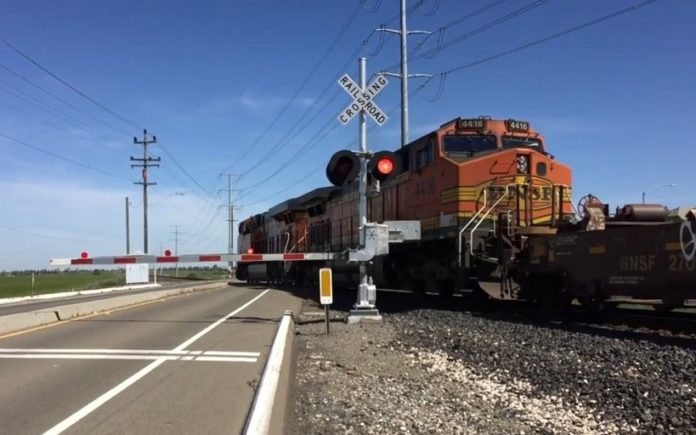For the first time in more than 100 years, a court has ruled that Kansas law can’t be used to limit how long trains can block railroad crossings.
Earlier this month, the Kansas Court of Appeals ruled that the state cannot regulate how long a train can block a railroad crossing because it’s pre-empted by federal law.
The appeals court found that the 1923 law, which bars trains from blocking intersections for more than 10 minutes without leaving a 30-foot opening, was superseded by the Interstate Commerce Commission Termination Act.
The federal law created the Surface Transportation Board, which has the exclusive authority to regulate the railroads.
The three-judge panel ruled that because the law is aimed at the railroads and has an effect on operations, it infringes upon the jurisdiction of the Surface Transportation Board.
“Although we agree with the state that trains blocking railroad crossings can be a safety hazard, the plain language of (the law)targets the railroad industry,” the court wrote.
The Interstate Commerce Commission Termination Act overrides state law “because it has an effect on railroad operations that is more than incidental or remote.”
The ruling stemmed from a 2016 case in Chase County where the sheriff cited BNSF Railway for blocking railroad crossings for four hours and six minutes in violation of state law.
Following a bench trial, BNSF was found to have violated the law by blocking the crossings for three hours and 52 minutes. The railroad was fined $4,200 plus court costs.
The court’s ruling reverses the railroad’s conviction.
The state argued that the Kansas antiblocking statute was a valid exercise of traditional police powers to protect public health and safety.
But the court ruled the state can only carry out those powers so long as they a “remote or incidental effect on rail transportation.”
The court agreed that Kansas has a long history of governing how long trains can block a roadway, starting with laws enacted in 1897. The law – in its present form – was enacted in 1923.
“At no point over the past 121 years has any state or federal court addressed whether federal law pre-empts (the current Kansas law) or its predecessors,” the appeals panel wrote.
However, the Kansas court found there was overwhelming national precedent against the state’s antiblocking legislation.
“Nearly all of the federal and state courts that have considered the issue of whether the ICCTA preempts state laws regulating how long a train can block a railroad crossing have concluded that they are categorically—or completely—pre-empted because they specifically target railroad operations.”
















